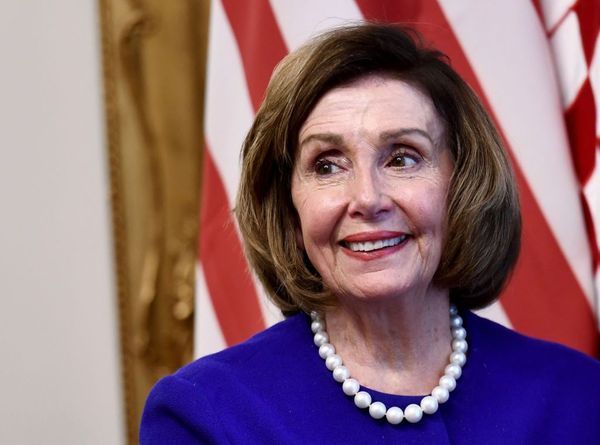
It’s no longer inflated rhetoric to refer to the Talibanisation of the United States: the right to basic reproductive health services for women curbed, violence against protesters, and the explicit threat — ironically from Clarence Thomas — that the right to contraception, same-sex relationships and marriage equality were next on the hit list.
It should be clear what lengths the fundamentalist right in the US will go to to impose its reactionary will on the majority of Americans. Not merely were they prepared to tolerate Donald Trump on the basis that he could deliver the stacking of the US Supreme Court with religious fanatics, they embraced him, even claiming he was a divinely appointed leader.
The appointed fanatics lied to Congress about the settled nature of Roe v Wade. But this is a movement that does not regard law, or democracy, or the constitution, or tradition, as impediments to their imposing theocracy on their fellow citizens. God wills it. That is the only law.
Despite a number of high-profile businesses announcing they’ll extend their health coverage of their employees to travelling out of state (something that anti-choice states will start banning), this Talibanisation has been financed by US corporations both at the state and national level, with big business backing Trump because he promised to deliver on their deregulatory, low-tax agenda, which he promptly did. The Trump presidency thus represented state capture both by corporate interests and Christian fundamentalists (specifically, white Christian fundamentalists).
Whether Trump is prosecuted or jailed for his role in the January 6 insurrection, or runs for president again, his greatest legacy is already in place — a fundamentalist majority on the Supreme Court that will be there for decades to come, allowing theocratic oppression, reversal of what little gun control exists, and enabling voter suppression and the overthrowing of election wins deemed unacceptable.
All from the disaster of 2016, when Hillary Clinton ran a poor campaign that failed to detect, let alone campaign for, the economic disillusion of low-income Americans in the United States’ hollowed-out manufacturing capacity. Clinton was a bad candidate, running because she felt she was entitled to be president, backed by an elite Democratic establishment, offering business as usual.
But she was also the only other serious candidate on the ballot against Trump, and she also won a majority of the popular vote by some considerable margin. Democracy is always a battle between least-worst options. Occasionally, apparently ideal candidates come along, like Obama in 2008, but the realities of office expose them as flawed like every other politician.
Clinton’s failure to win the Electoral College was exacerbated by the failure of many progressives to vote for her. Large numbers of Bernie Sanders supporters, in particular, refused to vote for her. Some — the estimated 12% of Sanders supporters who ended up voting for Trump — were likely not traditional Democrats anyway. But another 10% of Sanders voters simply refused to vote for Clinton. The Greens’ Jill Stein also drew enough votes away from Clinton to see her lose in at least two states — though whether the absence of Stein would have seen those voters simply switch straight to a Democrat isn’t clear. But either way, the perception of Clinton as an unacceptable neoliberal was enough to deter large numbers of progressives from voting for her — perhaps sufficient to deprive her already poor campaign of victory.
“Bernie would have won” say some progressives to this day. But Bernie wasn’t on the ballot. Democracy is not your preferred candidate against a political opponent, it’s whoever gets on the ballot. The failure to get Clinton over the line will have deadly consequences for American women.
The lesson is that, in the face of determined evil — theocratic fundamentalists who want to impose a medieval society in the name of God, financed by large corporations eager to control the state — effective politics is about accepting the flawed and compromised nature of democracy, and voting for someone you might bitterly oppose because they’re the only realistic option for stopping a profound evil.
The lessons apply equally here, even if abortion isn’t the political touchstone it is in the US — though access to reproductive health services remains dangerously uneven for Australian women. If progressives prefer to engage in perfection politics and elevate purity above political effectiveness, and celebrate ticking the correct identity politics boxes over delivering real change, the right will laugh all the way into power. Progressives will be arguing over the rules of engagement while their opponents trample all over rules, customs, traditions, and anything else that gets in their way.
No doubt this view will be slammed as that of an old white hetero male, and, sure, privilege/misogyny/racism/transphobia is the water I swim in, I don’t get it, I’m out of touch, etc. But when one side of politics is playing for keeps, the other must as well.







